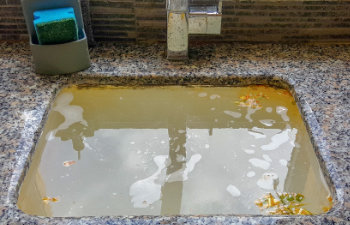
A septic backup is a homeowner’s nightmare, especially if you’re unprepared. Not only can it be messy, but it also poses health risks and can lead to costly damages. Fortunately, by knowing what to do during a septic backup, you can take prompt actions to mitigate these risks. Here’s a guide from Metro Septic on how to effectively handle this unpleasant situation.
1. Stop Using Water
First and foremost, stop using all water sources in your home. This includes toilets, sinks, washing machines, dishwashers, and showers. Using water can exacerbate the backup, pushing more wastewater into the already compromised system.
2. Protect Your Household
Septic backups can expose your household to harmful bacteria and pathogens. Ensure that everyone, especially children and pets, stays away from the affected areas. If any wastewater has entered your home, block off the area and ensure good ventilation by opening windows.
3. Check for Obvious Blockages
While it’s not recommended to delve deep into DIY solutions for septic backups, you can check for obvious blockages, such as in the toilet or drains. Sometimes, a simple plunge can clear minor clogs and provide temporary relief.
4. Avoid Using Chemicals
You might be tempted to pour chemical drain cleaners down the sink or toilet to clear the backup. However, these chemicals can damage your septic system and harm the beneficial bacteria necessary for breaking down waste.
5. Turn Off Electrical Power
If there’s a risk of wastewater coming into contact with electrical appliances, outlets, or fixtures, it’s safest to turn off the power to your home. This will prevent potential electrical hazards.
6. Call in the Professionals
Contact a professional septic service, like Metro Septic, as soon as you identify the problem. We have the expertise and equipment to quickly diagnose the cause of the backup and provide effective solutions. Whether it’s a full tank, a blockage in the system, or another issue, we can address it promptly.
7. Document any Damage
For insurance purposes, document any damage caused by the septic backup. Take photos of affected areas and list damaged items. This can help in case you need to file a claim.
8. Cleanup and Sanitization
Once the immediate septic issue has been addressed, it’s crucial to thoroughly clean and sanitize areas that came into contact with wastewater. This will ensure that your home is safe and free from harmful contaminants.
Trust Metro Septic for Emergency Septic Care in Cartersville
Experiencing a septic backup can be stressful, but taking the right steps can minimize its impact on your home and health. Remember, regular maintenance and inspections of your septic system by professionals like Metro Septic can help prevent backups and other issues, ensuring a smooth and efficient wastewater disposal system for your home.

